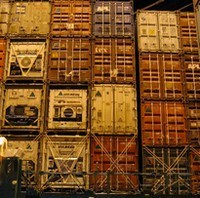Twenty years ago it was fashionable in academic circles to predict the end of sovereignty. It was also fashionable for people to take to the streets to protest the end of sovereignty. In both cases, trade occupied a central role. For academics and policymakers, the transition from the General Agreement on Tariffs and Trade (GATT), a messy, poorly defined system that was never an organization administering an agreement that was never a treaty, to the World Trade Organization (WTO), a carefully structured organization administering a phalanx of treaties, was a thing of wonder and the object of almost constant scrutiny. With the formation of the WTO coming on the heels of the conclusion of the North American Free Trade Agreement (NAFTA) and the birth of the European Union, trade seemed to dominate the international agenda. Most inspiring of all was the fact that the members of the new World Trade Organization agreed to submit their disputes to a binding dispute resolution process.
For people on the street, trade occupied a new and somewhat frightening role. Governments, in their attempt to convince populaces to support the new trade regimes, explicitly linked trade to economic growth and prosperity. That linkage may have been drawn too well: Candidate Ross Perot’s reference to the “giant sucking sound” as NAFTA sent jobs south was one of the most memorable statements of the 1992 U.S. presidential campaign. More terrifying than the vision of imminent economic decline, however, was the specter of an international supercourt that cared only for commercial transactions and that would grind national environmental and health regulations to dust. Sovereignty seemed lost.
Sovereignty

